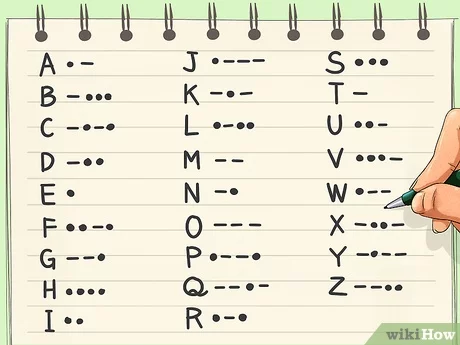Morse code, despite being an older communication system, still holds relevance in certain contexts, although its usage has significantly diminished in the digital age. Here are some points to consider regarding the future of Morse code:
Niche Applications: Morse code continues to find applications in certain specialized areas. For example, amateur radio operators, also known as "hams," often use Morse code as a mode of communication. In some emergency situations or when other forms of communication are unavailable, Morse code can provide a reliable and efficient means of transmitting messages.
Historical Significance: Morse code has a rich history and is considered an important part of telecommunications heritage. It played a significant role in long-distance communication, particularly during the era of telegraphs. As a result, Morse code has cultural and historical value, and there is still interest in preserving and learning this traditional coding system.
Cognitive and Educational Benefits: Learning Morse code can have cognitive benefits, such as enhancing memory, concentration, and pattern recognition skills. Some individuals enjoy the challenge and mental exercise that Morse code offers. It is also used in educational settings to teach coding concepts and principles.
Human-Machine Interface: Morse code has been adapted for use in human-machine interfaces, particularly for individuals with disabilities. For example, it has been employed as an input method for assistive technologies, allowing individuals with limited mobility to communicate using simple switches or buttons.
However, in mainstream digital communication, Morse code has largely been replaced by more efficient and versatile systems. Modern technologies provide faster and more accessible means of communication, such as text messaging, voice calls, video calls, and instant messaging, which have largely displaced Morse code.
In summary, while Morse code may not have widespread relevance in everyday digital communication, it still holds value in niche applications, historical contexts, cognitive development, and specialized communication needs. Its future is likely to be centered around these specific areas rather than as a primary mode of communication in the broader digital age.








